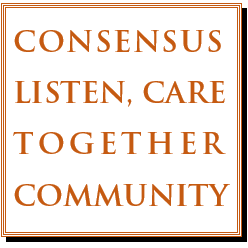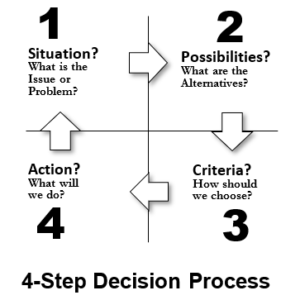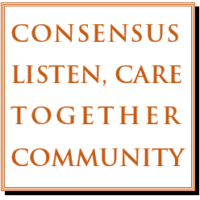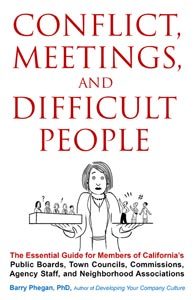 Several of you asked to hear more about the non-adversarial traditions of native Hawaiians and American Indians described in my last blog — alternatives to the U.S. adversarial decision-making process. Let’s dive in and I’ll explain.
Several of you asked to hear more about the non-adversarial traditions of native Hawaiians and American Indians described in my last blog — alternatives to the U.S. adversarial decision-making process. Let’s dive in and I’ll explain.
First, a recap. For 30 years I worked closely with leaders in large companies and government agencies. They all accepted our adversarial decision process as a given, not as simply another cultural artifact. When I showed them the non-adversarial consensus process, they jumped to adopt it. Some other cultures are there already.
“Talk story”
One of the great oral traditions in Hawaii is “talk-story”, the act of sharing history, ideas, opinions, and the events of the day with other people at any time and in any place. The missionaries who came to Hawaii in the late 1800s disapproved of it (they suspected it undermined missionary authority), but it remains a vibrant part of the Hawaiian oral tradition.
I encountered this powerful Hawaiian talk-story tradition when our consulting company worked with a manufacturing client on Oahu. After the dayshift, the native Hawaiian supervisors gathered around a table, sharing stories from their day. Each took turns and listened intently. These were not problem-solving discussions. This was listening time — what I later understood as the first, and sometimes the only necessary step of good consensus decisions.
When we hear how other people experience a situation, we make better decisions, we know what to do. Knowing doesn’t take thinking, it takes listening, understanding, and caring. Talk-story was part of what made that Hawaiian manufacturing plant so satisfying and productive — a great place to work.
Similarly, the native American Indian annual “Powwow” is about sharing, building understanding and community, while adding the power of celebration and dance.
We Know Consensus
Our dominant non-native American culture also uses consensus, but not in the public arena. We use consensus at home, with friends, and often at work. It’s also used in the formal scientific process. The difference between adversarial and consensus is where each begins. If we pull apart decisions, we see that consensus begins at the first step, competition with the last.
Decision-Making
As you read the steps below about the general decision process, be aware of this contrast. Consensus decisions use all four steps. The adversarial uses only one. Adversarial processes begin and end at step 4, arguing over, “What I want versus what you want”. Instead of building understanding, it entrenches positions. Instead of building community, it emphasizes differences, it polarizes. Instead of building a supported agreed on action, it creates a winner and a frustrated, “I’ll-get-even-later”, loser.
Formal decisions follow this general process.
1. Something happens — there is a problem, issue, or insight. The people affected get together, collect information, trying to understand what happened and how each person experiences it, i.e. they describe the situation as they see it.
2. Then they discuss possibilities and alternatives — “What might we do?”
3. To decide between these options, they shake them through a sieve that often includes, costs, practicality, legality, how long will each take, etc. etc.
4. One or two options usually stand out. They then choose one or a combination of several, and working together, make it happen.
Just as our constantly evolving, cyclical world presents an endless stream of situations, the 4-step decision process is best described as a circle.
Enjoying Combat — Too Much
The profitability of commercial sports attests to the attractiveness of adversarial combat. The thrill of the chase and the kill runs deep in our bones.
In our competitive culture, people who enjoy competition, and the rewards that come with it, often rise to the top in politics and corporations. Conversely, people who don’t enjoy competition tend to stand back, letting those who do take control. The tops of corporations and our electoral system are heavily weighted with people who find combat and its rewards deeply gratifying.
Understandably, this group promotes the competitive system that brought them power — and wealth. After 30 years of working closely with corporate and political leaders, I know firsthand how they often mock unfamiliar, non-adversarial processes. A typical refrain goes, “If you can’t stand the heat, get out of the kitchen!”
Who Benefits?
Sadly, our competitive culture increasingly separates winners from losers. An increasingly small percentage of our population enjoys an increasingly large percentage of the wealth. This means that an increasingly large percentage of our population suffers stress, hunger, ill health, and significantly shortened lifespans. Clearly, we don’t have a caring culture — unless you are bright and enjoy combat.
Today’s public outcries of “Black Lives Matter” and “Defund the Police”, while perhaps overly simplistic, are well-intentioned efforts to address our increasing division, inequality, and discrimination. I believe our public adversarial decision process, which by definition favors the powerful and wealthy, has surfaced legitimate rage in the three-quarters of our society it systemically denies equal access.
Ready to Grow Up?
The United States today is like a teenager with growing pains. Can we leave behind our addiction to the entertainment and drama of the adversarial process? Are we maturing, confident enough to make public decisions with consensus?
My recent book, Conflict, Meetings, and Difficult People* describes step-by-step how leaders can use a consensus decision process with public issues.
Consensus is not a spectator sport. It lacks the immediate thrill, and money-making attraction, of competitive sports. But consensus is deeply satisfying and much better for us. It takes real engagement, not childlike tantrums and stone-throwing. Consensus demands the kind of care, inclusion, and maturity we and our communities deserve.
* If you know an elected or appointed government official who might be interested in consensus and how to use it, send me their name and address. I’ll mail a free copy.
Please give me your ideas or suggestions on this or other blogs. I do appreciate your feedback.
Thank you.
me, Barry Phegan
Add Your Name below to my list to know when I have posted a new blog.





